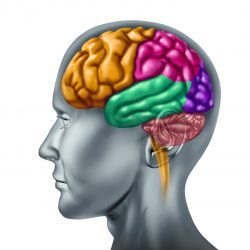“Mindfulness is the miracle by which we master and restore ourselves.” Nhat Hanh
“Who looks outside, dreams; who looks inside, awakes.” Carl Jung
Introduction: This post is one of my repeating themes. This one is on mindfulness meditation. Why would someone keep repeating a topic? Well, why do I do it? For the following reasons.
First, I believe in the topic. I think it helps me personally deal with my disorder. And by writing about something, it makes me think, and it re-engages me.
Second, several readers have requested the topic be updated.
Third, several of you enjoy my pairing of quotes and photos and have asked for more.
And fourth, I am in academics, and I publish peer-reviewed articles on Parkinson’s and other topics (here is a link to Google Scholar and most of my published papers, click here). I also have this blog on my journey with Parkinson’s. So what I’m doing in this blog post is highlighting some parts in one of my recently published papers into a blog post.
“What we get from each moment depends on the attention we give it, and the quality of our experience reflects the quality of our awareness.” Roger N. Walsh
Mindfulness Meditation Defined: In the “VeryWellMind”, Cathy Wong said “Mindfulness meditation is a mental training practice that teaches you to slow down racing thoughts, let go of negativity, and calm both your mind and body. It combines meditation with the practice of mindfulness, which can be defined as a mental state that involves being fully focused on “the now” so you can acknowledge and accept your thoughts, feelings, and sensations without judgment.” (Click here to read this interesting article)
“Nothing is worth more than this day. You cannot relive yesterday. Tomorrow is still beyond your reach.” Johann Wolfgang von
Mindfulness Meditation for Parkinson’s: In the following section (16 slides), I review the mindfulness meditation section of this publication, Hall, Mary-Frances E., and Frank C. Church. “Integrative Medicine and Health Therapy for Parkinson Disease.” Topics in Geriatric Rehabilitation 36.3 (2020): 176-186 (it was published as open-access, so to freely acces,, read and download the paper, click here). This is followed by slides on various aspects on why to practice mindfulness meditation.
















“The little things? The little moments? They aren’t little.” Jon Kabat-Zinn
Closing Comments: Your brain has changed, it continues to change, and you have Parkinson’s. It is subtle, it is relentless, it will not stop. What can you do? It all depends on you. For me, I keep searching for the ‘magic betterment,’ the strategy that just makes me feel almost right, back like it used to feel before Parkinson’s. Mindfulness meditation may help; it may allow you to relax just for a few minutes, maybe get the tremor a little less active. It may bring some brain-peace to you, well, that is the hope. Have you ever noticed while you are asleep and resting deeply your tremor stops and is at rest. In some ways, that would be a goal for mindfulness meditation, the ability to ‘chill’ your mind, relax your body, free you of the disorder for a few minutes. Even a few free minutes matter. It could make a difference.
“Mindfulness means moment-to-moment, non-judgmental awareness. It is cultivated by refining our capacity to pay attention, intentionally, in the present moment, and then sustaining that attention over time as best we can. In the process, we become more in touch with our life as it is unfolding.” Jon Kabat-Zinn
Cover Image by Kanenori from Pixabay. The vast majority of other images used in this post were also downloaded from Pixabay.


